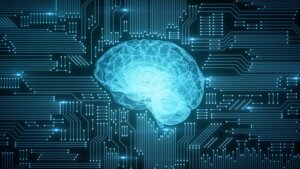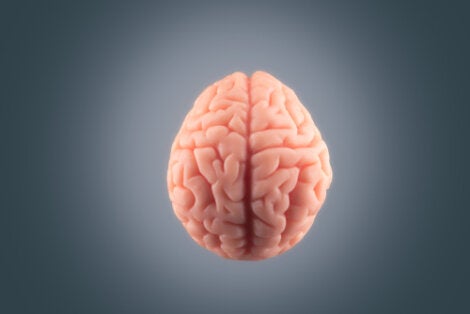How Digitalization Affects the Brain

The human brain has nearly 100 billion neurons that communicate with each other faster than the speed of light. However, since digitalization has invaded our lives, people have started to wonder if the brain could lose some of its abilities.
The brain has incredible plasticity and adaptability, meaning that it adjusts to its environment in order to optimize resources. In other words, if digitalization leads the brain to no longer have to be in charge of certain processes, maybe it’ll compensate by improving other abilities.
Researchers have already started to tackle this question. In fact, they’ve been able to identify some changes the brain might be experiencing, especially in the youth population.

Digitalization and cognitive abilities
In a relatively short period of time, there have been many technological advances. This has obviously changed the way we behave. Now we have different habits and do tasks differently. The way we communicate with each other and access information has changed and will continue to change.
According to Gary Small, a neuroscientist at the University of California, Los Angeles (UCLA), using technology changes your brain. Researchers have seen that some neural networks get stronger, while others get weaker. Although this is a natural process in the human brain, Small states that certain structures or specific circuits are changing. One example is the brain circuitry of attention.
We spend a lot of time on our smartphones, tablets, and computers. Sometimes, we use multiple devices at the same time. Multitasking is a cognitive skill that allows you to pay attention to several tasks at once. However, research shows that the brain can only fully pay attention to two.
Thus, when the brain focuses on two tasks, the prefrontal cortex divides its resources to carry them out. However, if you try to do more than two tasks at a time, you’ll have trouble filtering information. You’ll also focus on things that aren’t related to the task and have a hard time switching back and forth between tasks.
In addition, all of these technological advances affect your ability to retain information because you can look up the answer to any question at any time. That being said, scientists also suspect that multitasking improves the brain’s ability to make decisions because your senses are sharpened and the digital world encourages speed. Also, it improves information processing speed.
Digitalization and the developing brain
The effect of digitalization on children’s brains is important. Unlike the adults of this day and age, they’ve never known an analog world. They were born into this tech-centered society. In fact, children born after the year 2000 are considered “digital natives”.
That means that they’ve always been surrounded by technology. Consequently, they spontaneously and naturally develop a distinct way of thinking and understanding the world.
These digital generations develop digital abilities as they grow. Not just due to their environment, however. The way that the adults around them facilitate their interaction with the digital world plays a key role as well. For example, parents who give their young children cell phones or tablets to keep them entertained. This might seem like harmless behavior, but it can negatively affect children’s development.
On one hand, it encourages a more sedentary lifestyle, which can actually trigger physical changes in the brain. Lack of physical activity can cause the deterioration of nerve fibers and trigger poor cognitive performance. Also, researchers have seen that overexposure to technology can have a significant impact on language development. It can even increase cortisol levels, which is damaging to the brain.

Will our brains turn to mush?
As we mentioned above, the brain is incredibly adept at responding to its environment. Part of that adaptation consists of doing without neural networks that it no longer needs or uses. Thus, as the world becomes increasingly digitized, some networks will cease to be necessary and eventually degrade. This is what scientists call “the paradox of progress“.
However, contrary to what you might think, this isn’t inherently bad. That’s because the ever-changing brain will use those newly available resources to hone other skills. For example, you might not need to remember concrete information anymore because you can look it up anytime on your phone. However, you will have to remember where to access that information.
In conclusion, digitalization definitely changes the brain. Consequently, it also changes how you perceive and process the world.
This text is provided for informational purposes only and does not replace consultation with a professional. If in doubt, consult your specialist.








